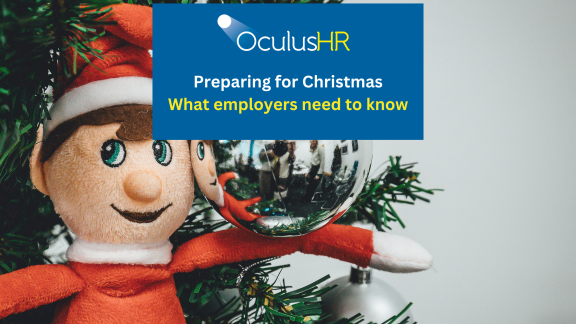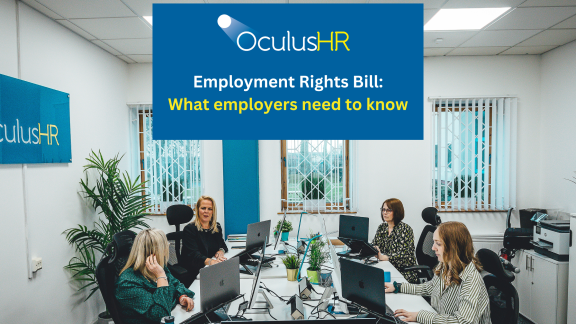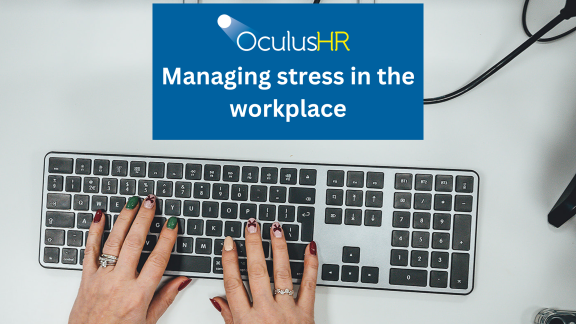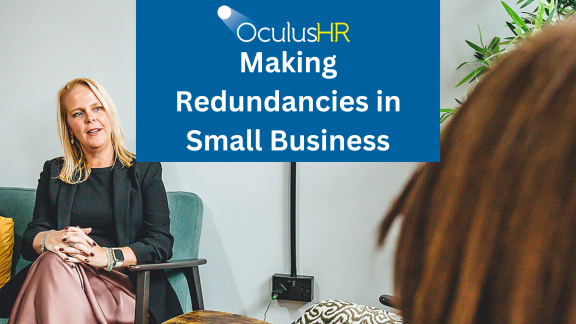Are you ready?
2025 is shaping up to be a pivotal year for employment law, demanding the urgent and strategic attention of business owners and senior leaders. We’ve highlighted some of the key legislative updates and proposals that we believe will require your action in the coming months. Navigating these changes effectively isn’t just about ticking compliance boxes; it’s about proactively safeguarding your business from risk, fostering a highly productive and engaged workforce, and ultimately, maintaining your competitive edge in a dynamic market. And let’s be frank, with employment tribunal claims showing a worrying 36% surge in single claim receipts in Q3 2024/2025 compared to Q3 2023/2024, the cost of getting this wrong has never been higher.
The Employment Rights Bill: Time to Overhaul Your HR Playbook
The Employment Rights Bill is currently making its way through Parliament with no confirmed date, however it is expected in late 2025 / early 2026. This isn’t just a minor tweak to the rules; it’s a significant overhaul, introducing 28 individual reforms that will ripple through every aspect of your business.
One of the biggest shake-ups is the enhancement of day-one rights, effectively removing qualifying periods for core rights like unfair dismissal and parental leave. What this really means for your business: Forget the old “wait and see” approach with new hires. You’ll need HR processes that are watertight from day one. Imagine this: a new employee with performance issues could potentially bring an unfair dismissal claim much sooner, forcing you to demonstrate impeccable documentation and due process from the outset. Are your contracts, handbooks, and disciplinary procedures up to that level of scrutiny?
The bill also significantly strengthens protections for employees in vulnerable situations, particularly concerning dismissal during pregnancy and maternity leave. “Fire and rehire” practices, a tactic used by some to force contract changes, will also be heavily restricted. For example, let’s say you’re facing economic headwinds and need to restructure. Simply dismissing existing employees and offering them their old jobs back on lower pay is likely to land you in hot water. You’ll need to exhaust all other avenues including cost-cutting, efficiency improvements, genuine consultation, and be able to prove you did so.
Flexibility and Fairness: The New Battleground for Talent
Employees have the legal right to request flexible working from their first day. This isn’t just about working from home; it’s about rethinking how, when, and where work gets done. The decline of rigid 9-to-5, office-based roles means failing to offer genuine flexibility – such as compressed hours, job sharing, or hybrid options – will hinder your ability to attract and retain top talent. This requires a proactive strategy, not a grudging acceptance of requests.
The clock is also ticking louder on fairness. The time limit for employees to bring a tribunal claim is being extended, statutory sick pay will be payable from day one, and large employers will be compelled to create action plans to tackle gender pay gaps. The reality is, these changes are designed to level the playing field. Any whiff of unfairness – discriminatory pay, inconsistent application of policies, inadequate support for sick employees – will be amplified, increasing your legal risk and damaging your employer brand.
Supporting Working Parents: A Modern Imperative
A crucial new provision for April 2025, is the introduction of neonatal care leave and pay, providing vital support for parents of babies who require intensive medical care.
Eligible parents will be entitled to take up to 12 weeks of leave, in addition to existing parental leave entitlements. This applies when a baby receives care in a hospital within the first 28 days of life, for a continuous period of at least a week. Leave is available from day one of employment, and eligible employees will also receive pay during this period.
You can turn this into a positive for your company by:
– Developing a compassionate and comprehensive policy on neonatal care leave and pay, going beyond the legal minimum where possible.
– Investing in training for managers, equipping them to handle these sensitive situations with empathy and understanding.
– Communicating these entitlements clearly and proactively, showcasing your commitment to supporting employees through life’s challenges.
Beyond the Bill: Preparing for the Evolving World of Work
It’s not just the Employment Rights Bill you need to be thinking about. There’s ongoing debate about everything from menopause support in the workplace to a potential move towards a single ‘worker’ status. This proposal aims to simplify the current employment law framework by replacing the existing three-tier system (employees, workers, self-employed) with a single category, granting more consistent rights to individuals performing work. Ultimately, the direction of travel is clear – towards greater employee rights, increased flexibility, and a stronger emphasis on well-being.
Strategic Imperatives: Your Action Plan for 2025
To not just survive but thrive in this evolving landscape, business owners and senior leaders must:
– Become proactive information gatherers: Don’t wait for changes to happen to you. Actively monitor legislative updates, attend industry briefings, and subscribe to reputable HR resources.
– Conduct a top-to-bottom HR audit: Review every policy, process, and contract with a critical eye. Are they compliant? Are they clear? Are they fit for the future of work?
– Invest in management training – it’s not a luxury, it’s essential: Equip your managers to handle flexible working requests fairly, manage sensitive leave situations, and foster a culture of respect and inclusion.
– Build a relationship with an HR or legal expert: Don’t try to navigate this alone. Having access to trusted advisors will provide invaluable support and peace of mind.
By taking these decisive steps, you’ll not only protect your business from legal pitfalls but also build a resilient, engaged, and high-performing organisation that’s ready to seize the opportunities of 2025 and beyond.














